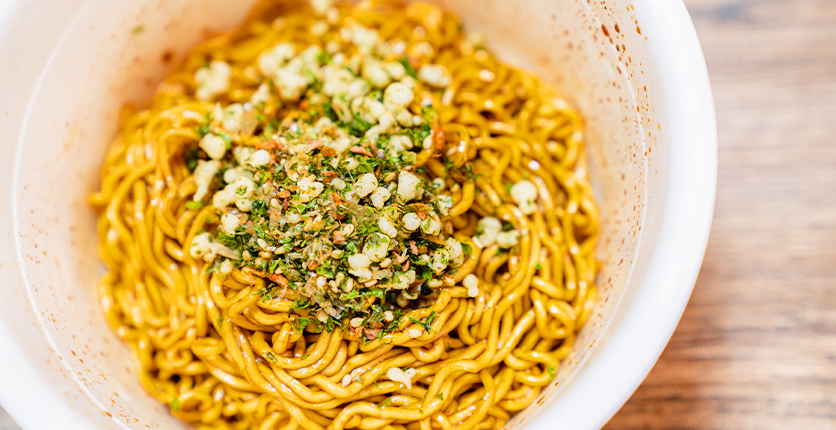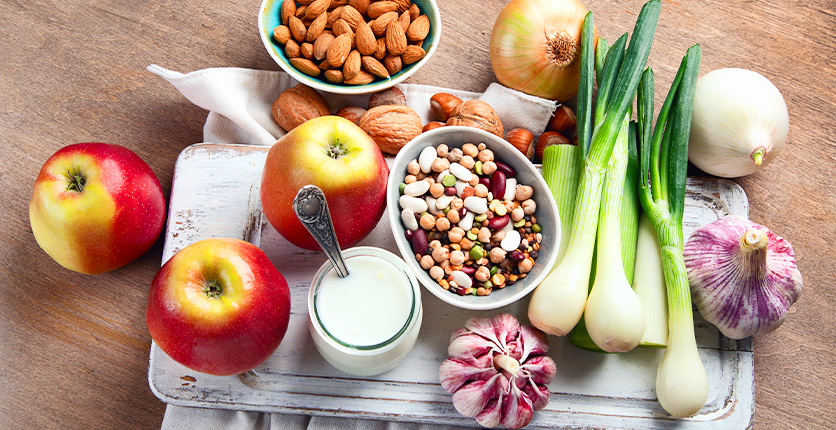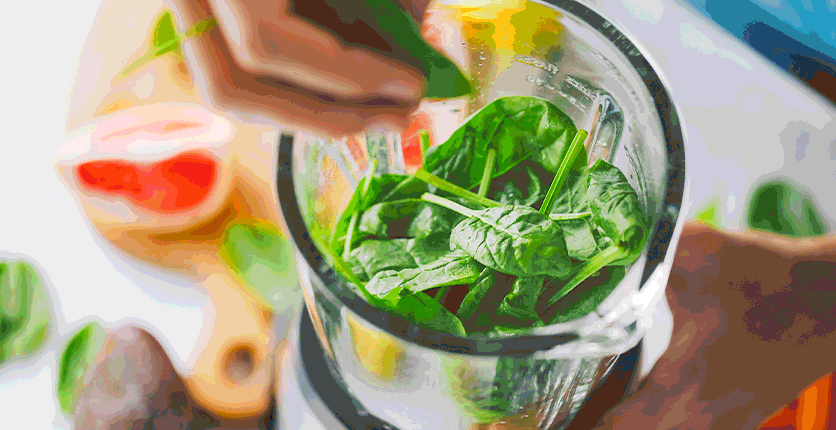It’s common for many of us to embark on diets at the beginning of the year, whether it’s to lose the weight we gained over the holidays or just to get back to healthier eating habits.
But going on a restrictive diet isn’t the answer. According to naturopath Dr Sabine Schellerer, there are better ways to “reset” your digestion and shed those excess kilos as you resume your regular meals in the New Year. Here are six tips to guide you.
1. Don’t skip meals

Skipping meals lowers our blood sugar (glucose). This is not good for our brain, which requires glucose to function, says Sabine. When glucose is missing, we get irritable and start to crave carbohydrates. This may lead us to binge on unhealthy foods. Another downside of skipping meals is that it can slow the body’s metabolism and lead to weight gain.
There’s nothing wrong with going on a fast if it’s done properly, she adds. “It can help your body recover after a month of feasting, but it should be done correctly and you should remember to hydrate adequately as well as relax while you’re on it.
“There are different ways to fast and everyone is different, but some people like to fast one or two days a week, while others prefer to fast intermittently. Remember, though, that the purpose of fasting isn’t to lose weight; rather, it should help you transition to a healthier lifestyle.”
2. Avoid processed foods

“It’s best to choose fresh foods, including plenty of vegetables and fruit,” Sabine suggests. “Aim for each meal to consist of three to four serves of plant foods, so that you consume approximately nine to 12 serves per day.”
In addition, your meals should have some healthy fats like olive oil, avocado, nuts and seeds. Instead of refined carbohydrates like white bread and pasta, go for complex carbohydrates that are high in dietary fibre and other nutrients. You should also prepare your meals yourself so that you can control what goes into them.
3. Drink plenty of water

Our bodies can’t function properly without water, so be sure to stay hydrated as you transition back to a healthier way of eating. The recommended amount per day is 2 to 2.5 litres, more if you do a lot of strenuous activities and perspire a lot.
Besides water, you can also opt for herbal teas and fresh fruit and vegetable juices. Coffee and tea are fine too, but consume these in moderation since they have a dehydrating effect. Plus, they’re high in caffeine.
“Avoid soft drinks and other sugary beverages,” Sabine adds.
4. A juice “detox” can be healthy, but do it right

Going on a short, one- or two-day juice “cleanse” or “detox” is popular with people who want to “reset” their diet and feel a little healthier and “lighter” after the festive season.
Sabine says to choose the right kinds of juices. In the mornings, for example, you may want to use fruit like pineapple, apples, berries, citrus fruit, melon, or red grapes. These give you the energy boost you need you start your day. At lunchtime and in the evenings, go with fresh vegetable juices, which are alkaline and help regulate your body’s acid-base balance. The most ideal vegetables to juice are cucumber, carrot, kale, bell pepper, celery, beetroot, parsley and radish.
5. Work towards slow and steady weight loss

It’s normal to have put on a few kilograms after an entire month of eating rich festive foods, but you shouldn’t starve yourself or try other quick fixes to get rid of them. Instead, aim to lose weight slowly – about 1kg a week is normal and healthy.
Sabine says to focus on fresh homemade meals made mostly from plant foods and to avoid alcohol. Regular exercise, such as a gym routine, should also play a role in your quest to get back into shape.
“You don’t have to exercise like crazy, but rather, do an activity you enjoy, once a day, like cycling, walking, swimming or yoga. Alternatively, you could take the stairs instead of the elevator or get off the bus one of two stops earlier and walk to your destination.”
6. Eat for a healthy gut

After overeating and eating poorly, it’s important to restore your gut health.
“Our digestive tract is home to more than 500 species of bacteria that are collectively important for overall health,” says Sabine. “We give these bugs a home and in exchange they do a variety of things for us, like digest food, synthesise certain vitamins and protect our immune system. They also create a barrier in our gut, helping our bodies filter and absorb nutrients from what we eat.”
Two main probiotic bacteria types that reside in our gut are Lactobacilli and Bifidobacteria. You can contribute to the growth of these bacteria by taking Lactobacilli and Bifidobacteria supplements and/or eating probiotic foods.
These bacteria also need nourishing foods to properly thrive, in particular, prebiotic foods, which are high in fibre.
Some examples of prebiotic- and probiotic-rich foods include legumes, beans, lentils, whole grain wheat, onions, garlic, sweet potatoes, unripe bananas, oats, spinach, beetroot, broccoli, berries, apples, kimchi, cottage cheese and tempeh.
For probiotic supplements, SAFRA members enjoy 15% off regular-priced items at GNC. More info at www.safra.sg/promotions/gnc
Note: Please consult your physician before starting on any diet plan.
Want more health articles like this, and other lifestyle content right in your inbox? Sign up for the eNSman Newsletter – you don’t need to be a SAFRA member to subscribe – and never miss another story!







